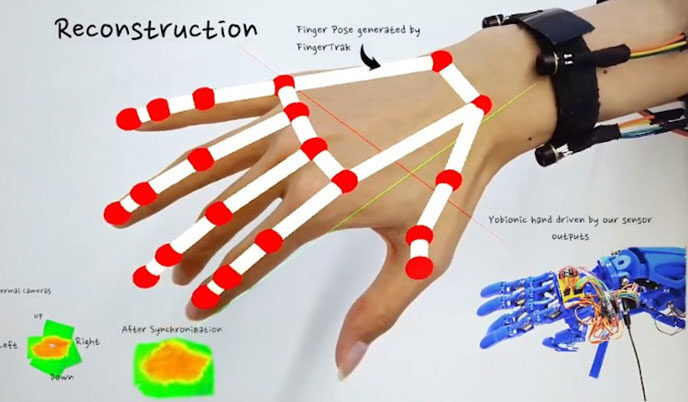
Darcie Moore selected as 2020 Vallee Scholar in recognition of research
Darcie L. Moore, PhD, assistant professor of neuroscience, has been named by the Vallee Foundation as a 2020 Vallee Scholar. The award provides $300,000 in funding for basic biomedical research over four years.

UW–Madison Alzheimer’s researchers well-represented at annual conference
Researchers from the Wisconsin Alzheimer’s Disease Research Center, Wisconsin Alzheimer’s Institute, and the University of Wisconsin School of Medicine and Public Health shared new dementia research at the virtual 2020 Alzheimer’s Association International Conference, July 27 to 31.

UW researchers devise approach to treat rare, incurable form of blindness
Scientists at the University of Wisconsin‒Madison have published a proof-of-concept method to correct an inherited form of macular degeneration that causes blindness, and that is currently untreatable.

UW study looks at new protections for frontline health care workers during COVID-19
A new prevention research study at the University of Wisconsin School of Medicine and Public Health looking at whether commonly used oral and nasal antiseptic (in addition to personal protective equipment and hand hygiene) can help prevent COVID-19 infections in frontline health care workers.

Researchers develop 3D hand-sensing wristband using UW software
Researchers from Cornell and the University of Wisconsin–Madison have designed a wrist-mounted device and developed software that allows continuous tracking of the entire human hand in three dimensions.

Detailed view of viral replication machinery lends new insights into infection
The coronavirus that causes COVID-19, SARS-CoV-2, is known as a positive-strand RNA virus because of the way it stores and makes copies of its genetic material. Many other important pathogens such as the Zika, dengue and chikungunya viruses are also part of this same group — the largest of six genetic classes of viruses.

Remembering Dr. Edward Jackson
With great sadness, we share that Edward “Ed” Jackson, PhD, Chair Emeritus of Medical Physics, passed away on June 2, 2020 after a long illness. He will be remembered as a tireless advocate for science, education, and our broader community.

Three COVID-19 clinical trials move forward at UW
The University of Wisconsin School of Medicine and Public Health and UW Health will conduct three clinical trials to test a new treatment and preventative for COVID-19, in collaboration with Regeneron Pharmaceuticals.

UW School of Medicine and Public Health and UW Health quickly launch numerous COVID-19 clinical trials
As the outbreak of the novel coronavirus that causes COVID-19 was deemed a pandemic, research institutions across the United States rapidly shifted focus to studies aimed at understanding the virus and finding treatments. The University of Wisconsin School of Medicine and Public Health is among them and has responded to the demand in a big way.

‘COVID toes’ clinical trial underway at UW School of Medicine and Public Health
A team of researchers at the University of Wisconsin School of Medicine and Public Health is studying how the skin condition referred to as “COVID toes” is a connected to the virus, whether it is symptom of a COVID-19 infection or an immune response to the virus.

Francisco Pelegri named chair of medical genetics
Professor Francisco Pelegri, PhD, has been named chair of the University of Wisconsin–Madison Laboratory of Genetics, effective July 1, 2020.

In COVID-19 response, don’t let urgency trump sound science
Bioethicist Pilar Ossorio says the world could be at risk of sacrificing essential knowledge for fighting COVID-19 and future deadly viruses if the COVID-19 response is not accompanied by sound research.